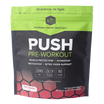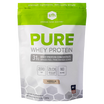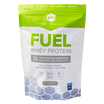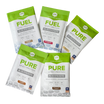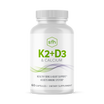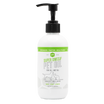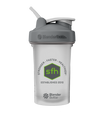Sleep For Recovery: The Crucial Piece Of The Fitness Puzzle Too Many Of Us Are Missing
You’re sweating it out in the gym. You’re watching your diet like a hawk. The supplements you’re taking perfectly line up with your fitness goals. But still, despite all the effort you’re putting in, you just aren’t seeing the results.
If this sounds like you, you might want to take a closer look at your sleep habits.
Getting enough sleep can sometimes feel like the very least of your priorities when you’re busy making moves and checking off everything else on your to-do list. But as it turns out, sleep is one of the key ingredients for a happier, healthier you – and too many of us are putting this crucial good habit on the backburner.
Getting too little sleep can stunt your recovery and impact your training routine.
The reason behind this? Like many things in your body, it comes down to your hormones.
Exercise is one of the greatest things you can do for your health and fitness, but it can also be really physically stressful on your body. Working out depletes your energy stores and causes microscopic damage to your muscle fibers. Your body depends on your immune system and your hormones to help repair that damage afterward and let you bounce back fitter and stronger than ever, which is why recovery and nutrition are such important pieces of the puzzle.
This is where the importance of sleep comes in. Your body releases key hormones throughout the day and night based on a natural cycle called your “circadian rhythm.” Among these hormones are human growth hormone, which helps your cells grow and repair from damage, and cortisol, your “stress hormone” which also plays a part in your metabolism.
Unfortunately, sleep deprivation is known to mess with both of these hormones, which can negatively impact your body’s ability to fully heal and maximize muscle growth after a workout. Ultimately, inadequate sleep can slow down your muscle protein synthesis, compromising your recovery after an intense workout.
Poor sleep can affect your actual workout as well. You’re probably also aware that a night of poor sleep tends to lead to grogginess and overall cognitive impairment, and this can impact your ability to perform well both in and out of the gym. For example, one study found that students who got less than eight hours of sleep per night were 1.7 times more likely to get injured during athletic activities than students who got enough sleep! Another study found that inadequate sleep can also impair your overall strength, stunting your ability to maximize your training efficiency.
How many hours of sleep do you actually need?
Your sleep needs can vary from person to person. On average, many scientists and health experts agree that most adults should get somewhere between 7-9 hours of high-quality sleep every night.
Can you get too much sleep?
If you’re constantly sleeping more than nine hours a night, or find yourself needing frequent naps throughout the day despite a night of long sleep, it could be a sign that there’s something else going on. Otherwise known as “hypersomnia,” needing more than nine hours of sleep a night or frequent naps throughout the day on a regular basis can be a sign of underlying medical conditions. Oversleeping has also been linked to issues like obesity and diabetes.
Tips to improve your sleep
- Create a nighttime routine - Bedtimes are not just for kids! Getting into the habit of “hitting the hay” around the same time every night can help you get used to falling asleep at a reasonable hour, and one study found that a regular sleep routine is also linked to better overall sleep quality.
- Avoid eating, drinking, and exercising too close to bedtime - Some people find that working out too late in the day can lead to long and sleepless nights later. If this is the case for you, you might want to consider moving your schedule around and squeezing in your workout earlier in the day, rather than hitting the gym after work or in the evening. Similarly, you can try limiting your food and beverage intake at night if you find yourself dealing with late-night digestive issues or are finding your sleep constantly interrupted by bathroom breaks.
- Tweak the environment - One easy way to set yourself up for better sleep is to make your room as relaxing and comfortable as possible. Keep it as calm, clean, and quiet as possible to turn it into a haven for rest and relaxation. If necessary, play around with your air conditioner or crack a window to perfect the right temperature for optimal sleep. Also, designate your room for sleeping only – that means no working from your bed, no matter how comfy it might be!
- Limit the distractions - If you find your mind racing at the end of the night after watching a particularly enthralling TV show, or scrolling endlessly on your phone deep into the midnight hours, it’s a good idea to start setting limits for your screentime. All that blue light can mess with your sleep hormones and make it harder to drift off!
- Try some meditation - Don’t write off the power of a little mindfulness in your quest to get better sleep. More and more studies are finding that mindfulness meditation can be effective at improving sleep quality.
What else can you do if you have insomnia?
If your sleepless nights still aren’t being solved after changing your bedtime habits, it might be worth checking in with a health professional. Depending on your personal sleep issues, a doctor might give you a physical exam to rule out any underlying health issues that are causing insomnia, like thyroid issues, or order a sleep study to evaluate potential nighttime roadblocks.
Conclusion
Good sleep is more than just a chance for your brain to refresh at the end of a long day. Ultimately, not prioritizing your sleep could be getting in the way of your recovery and overall fitness.
Meet the Author

Erica Digap is a science-minded copywriter specializing in evidence-based nutrition science, fitness, and health content. After receiving her Bachelor of Science in Clinical Nutrition from the University of California, Davis, and working as a consultant and director in the corporate diet industry for many years, she decided to set forth and use her experience and expertise to inspire readers to make lasting, healthy lifestyle changes – one nutritious meal and workout at a time.
Linkedin / Website


